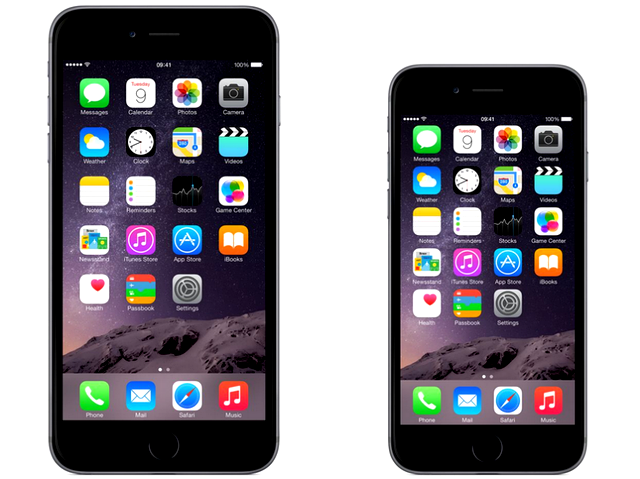
The move to bigger iPhones is arguably the best decision that Apple has made in recent years. Consumer demand has been extremely strong from launch, proof being that Apple was able to match Samsung's shipments in Q4 2014 and post record sales quarter after quarter. The result? Record earnings.
The strong iPhone sales also translate into a strong market share. In Europe, Apple's handsets are gaining ground across all five-largest local markets, at the expense of either market leader Android or third-place rival Windows Phone, according to a new report from Kantar Worldpanel ComTech.
In the five-largest European markets, namely France, Germany, Great Britain, Italy and Spain, Apple's iPhones accounted for 17.5 percent market share in Q2 2015, a 14.37 percent growth year-over-year from 15.3 percent market share in Q2 2014. Apple's smartphones are strongest in Great Britain, with iPhones capturing 34.1 percent of the market, and weakest in Spain, where their market share is just 8.8 percent.
Android's market share has decreased by 3.38 percent on the old continent, to 71.3 percent market share in Q2 2015 from 73.8 percent market share a year before. Google's operating system, however, continues to dominate across Europe, recording an 88.1 percent market share in Spain, where it is most-popular, and 53.2 percent in Great Britain, which sits at the opposite end of the table.
Microsoft's Windows Phone has actually lost ground in the five-biggest European markets, losing 11.76 percent market share year-over-year; it is down to 4.5 percent market share in Q2 2015 from 5.1 percent market share a year before. However, Windows 10 Mobile is on the horizon, so maybe things will pick up for Microsoft in the foreseeable future.
Things are not all rosy for Apple, as iPhones have lost some ground in US, dropping to 30.5 percent market share in Q2 2015 from 32.8 percent market share a year before. Meanwhile, Android has gained some percentage points, as it saw its market share increase to 66.1 percent from 62.7 percent. Windows Phone has also gained considerable market share, relative to its own, rising to three percent market share from 1.9 percent a year before.
"While the Android ecosystem in Europe and China continues to offer several brands to choose from, Android in the US is undergoing its strongest consolidation yet, with Samsung and LG now accounting for 78 percent of all Android sales", says Kantar Worldpanel ComTech chief of research Carolina Milanesi. "LG is the real success story of the quarter. Not only did it double its share of the US smartphone market once again, but it was also able, for the first time, to acquire more first-time smartphone buyers than Samsung".
In China, iPhones gained even more ground compared to Europe. Apple's smartphones account for 20.1 percent of the market, up from 12.8 percent a year before. Android has lost some market share, dropping to 79 percent from 84.3 percent. Same goes for Windows Phone, which is down to 0.5 percent from just 1.2 percent in Q2 2014.
"In urban China, Huawei took the top spot in the smartphone vendor ranking based on the success of its Honor lineup", says the research company's strategic insight director Tamsin Timpson. "The Honor 4X, Honor 6, and Honor 6 Plus all made it into the top 10 most popular smartphones. Both Huawei and Xiaomi have been able to expand their appeal to a wider range of consumers by extending themselves beyond their initial market positioning".
"Huawei now attracts a younger and more affluent base with its Honor brand, while Xiaomi also appeals to older users, who look for reliable, good-value-for-money offers", adds Timpson. "Within Android, which accounted for 79 percent of the smartphones sold in urban China in the second quarter of 2015, new names are emerging, such as Meizu, whose share grew 700 percent over the same period in 2014, while established names, like Lenovo, experienced weaker sales compared to one year ago".

